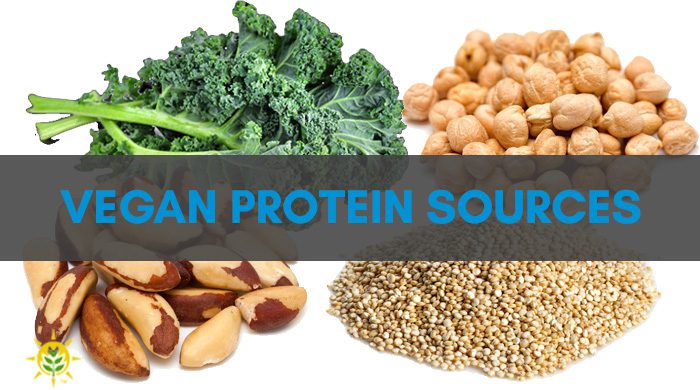Vegan Protein

Vegan Protein Vs. Animal Protein
People have been lied to that animal protein is better than vegan protein. Animal protein leads you to the grave faster because it supports the proliferation of cancer and other chronic diseases while vegan protein (plant protein) doesn’t.
The message that animal protein was better than vegan protein was spread at first through misunderstanding. After is was proven animal protein wasn’t better than vegan protein a meat a campaign was purposely put in place to keep animal protein on top as the king of protein, essentially making people forget that plants even contained protein.
Animal Protein Falsely Promoted As Superior To Vegan Protein
Animal protein was given the “Class A” classification and vegan protein was given the “Class B” after a 1914 study[1] showed that rats fed animal protein grew faster than rats fed vegan protein. Part of the reason for this is animal protein more closely resembles the protein structure in the body and therefore is assimilated faster. Animal protein also contains growth hormones that support accelerated growth.
Animal protein was given the “Class A” classification because it was thought that its accelerated growth properties were due primarily to it containing all the essential animo acids the body needed.
Plants were given the “Class B” classification because it did not support the accelerated growth animal protein did, which was thought to be caused primarily by vegan protein not containing all the essential amino acids.
At first it appeared that animal protein’s “complete protein,” which closer resembled the animo acid makeup of the body, and growth hormones was a good thing. This was until further studies showed that the consumption of animal protein also promoted cancer growth when vegan protein did not.[2]
Though the consumption of animal protein was problematic, studies did show the body was able to compensate for the negative effects of animal protein as long as animal protein consumption was 10% or less than the total calories consumed in a day.
From 10% -20%, the consumption of animal protein exponentially supported the proliferation of cancer in the body. The consumption of vegan protein did not support the proliferation of cancer.
Vegan Protein Incomplete Protein Myth
Earlier studies incorrectly implicated plants as containing incomplete protein, which was later determined to be a false claim. Plants do contain complete protein but they do not contain amino acids in the same ratio as animal protein.
Subsequent studies found the difference in amino acid makeup of vegan protein was actually a health protecting factor that controlled overall growth and inhibited the growth of cancer.
Unfortunately Frances Moore Lappe inadvertently reinforced the incomplete protein myth in her very popular 1971 book Diet for a Small Planet. She promoted a vegetarian diet to combat world hunger, but also expressed concern in the book that vegan protein in plants might not supply the needed animo acids.
Emphasis was put of food combining, an idea that still lingers today, which supported the idea the vegan protein was inferior to animal protein.
After learning that her statement was wrong, Lappe revised her comment in later editions of her book stating that food combining wasn’t necessary as long as you ate a diet containing sufficient calories.
Researchers have shown that it is virtually impossible to eat a whole food plant-based diet that is vegan protein amino acid deficient if you eat a sufficient amount of calories. In theory, eating a vegan diet centered of fruits is considered a diet that might not supply all the amino acids needed, but in reality fruitarians are thrivingly on fruit-centered diets.
Lappe’s initial release of her book was so popular, that though she later revised her comment, she could not undo the damage the original statement had done in solidifying vegan protein as a second class protein, leading to people forgetting that plants even contained protein.
Amount Of Protein Needed
An important thing to remember is people only need 10% of their daily diet to come from protein, which is easily supplied by a well-rounded whole food vegan diet.
Animal protein consumption above 10% of the diet exponentially supports the proliferation of cancer in the body up to 20% of the diet. Consuming vegan protein up to 20% of the diet did not support cancer proliferation.
If you eat a well-rounded vegan diet consisting of whole fruits, vegetables, nuts, seeds, legumes, and whole grains you will easily consume all the amino acids you need to support homeostasis in the body.
[1] T. Osborn, “Amino Acids in Nutrition and Growth,” J Biol Chem 17 (1914): 325.
[2] T. Colin Campbell Foundation and TILS, “Nutrition TCC501: Nutrition Fundamentals: On Nutrients And Their Interactions.”






